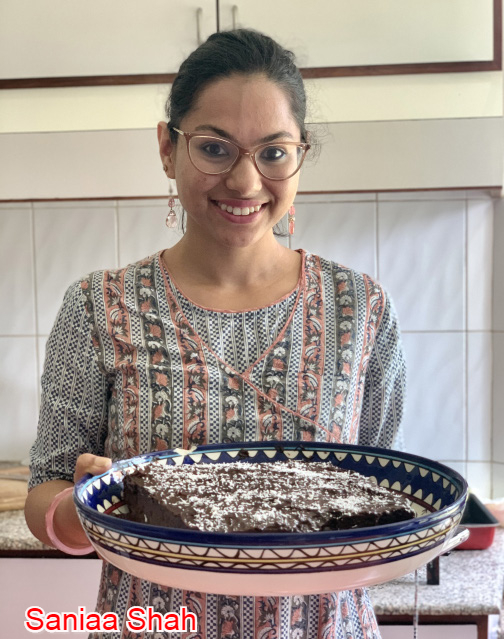Waking up at 10:00 am, indulging in a delicious, calorie-heavy lunch and then lounging in bed the entire day used to be fun on the weekends—when we had had a hectic week and deserved some TLC. (No) Thanks to the Covid-19 restrictions, that Saturday ritual which we once coveted is an everyday affair and it’s driving us crazy.
Confined to our homes, stressing out about whether we (and our work) will survive this pandemic, and feeling pretty useless is a global phenomenon right now. If life could be described by a book title, ‘Bleak House’ by Charles Dickens would be it.
But enough of this lackadaisical life. It’s time to reclaim our Carpe Diem attitude—the one that the pandemic is holding hostage.
According to Girley Agrawal, head, CG Education, the first and foremost way of doing that is by accepting your circumstances. That way, she says, you will be better equipped to stay happy and balanced.
“When you can’t change things, you have to tweak your outlook and focus on the positive. It’s all about your mindset,” she says. The mother of two says she tries to stay upbeat for the sake of her children. She simply doesn’t have the luxury of wallowing.
A strong advocate of not working long, erratic hours while working from home, Girley says walks, playing badminton and cooking help her destress and lend some structure and purpose to her days.
Bijay Gajmer, freelance multimedia journalist, says you must remind yourself, time and again, that this situation won’t last and try to make the most of it. Bijay keeps himself occupied with the many online courses he has signed up for on Udemy and Coursera. He is also learning data visualization on his own to enhance his resume.
“There really couldn’t be a better time to pick up new skills,” he says.
Anjali Subedi, journalist, Nepal Republic Media, echoes Girley’s sentiments when she says a lot depends on how you view the situation.
“If you have a positive outlook, you can use this time to your advantage. If not, then things can get distressing,” says Anjali who, in her own words, has always been a happy-go-lucky person.
“The second phase of the lockdown was initially difficult. But I reminded myself that this will pass. Now, I’m trying to do things that fill me with a sense of peace,” she adds. To start with, Anjali intends to take up gardening as she finds it extremely therapeutic. She also has music playing in the background whenever she’s pottering around the house.
Little things, and less social media
Idealistic theories aside, for many it seems the key to staying sane as we battle the pandemic lies in the little things. A cup of extra sweet black tea in the morning, trying out a new recipe every other day, rereading old favorites, origami, nightly Stephen King horror movie sessions; it’s the little things that can add a much-needed spark to your days.
Saniaa Shah, founder, Studio Aakar, has found comfort in repetitive activities during these anxiety-inducing times. Whether it is doing yoga first thing in the morning, making breakfast, playing boardgames with her family, going for an evening walk, or watching movies, a daily routine is what gives her life a semblance of normalcy.

“The key thing is to approach this ‘covidified life’ with an attitude of being purposeful about finding joy in the ordinary,” she says.
Saniaa also thinks that in this situation, we are ‘better together’—that those who are able to enjoy companionship, whether of family members, siblings, or spouses, are able to cope better. In case you don't have that, WhatsApp video calls and Zoom happy hours, she says, can go a long way.
On the downside, trying to stay connected has led to people turning to their screens more than ever. Mental health experts, around the world, are of the opinion that spending too much time on social media can lead to depression, anxiety, and trauma.
Grishma Bista, lawyer and fitness instructor, has a simple fix for that. She doesn’t have social media apps on her phone and uses her laptop to log on to Facebook and Instagram. This, she says, curbs unnecessary scrolling and content consumption.

For her, it’s imperative to avoid rumors, speculations and unnecessary information that can fuel anxiety. Instead, she focuses on positive affirmations, which she listens to while cooking or cleaning her room.
Routine, rituals, and short-terms goals
The consensus seems to be that a basic routine is necessary to tackle the pandemic-induced productivity slump in our lives. Some people confessed that while they had initially become complacent like a cow on Kathmandu roads, they soon felt the need to get their life back on track.
Though not having a strict schedule felt liberating when Nepal first went into lockdown on 24 March 2020, most people APEX talked to said that the newfound freedom didn’t make them happy for long. What it did instead was instill a sense of hopelessness and lack of purpose.
According to Umanga Jung Parakram Shah, psychotherapist, Nepal Academy of Psychology, feeling down is normal in these trying times. Acknowledge it, he says. Share how you feel with others. What that can do is give you a new perspective, make you realize you aren’t in this alone, and thus fill you with hope.
“We underestimate the power of social connections. But there’s no denying that human beings are gregarious by nature and thrive in a community,” says psychotherapist Shah adding that the biggest challenge of the Covid-19 restrictions, for many, has been limiting social contact.
With social distancing being the need of the hour, we might not be able to catch up with friends and family as we once did. However, that doesn’t mean you can’t do virtual group activities on a regular basis. And this is especially important for older members of your family who are more prone to the effects of isolation, says the psychotherapist.
Besides that, he also emphasizes the importance of sticking to a routine and keeping yourself engaged. This can fuel your self-worth and make you feel like you aren’t stagnating.
“I would also recommend focusing on short term goals for the moment. Learn a new skill. Sign up for a course. Challenge yourself to do something you previously couldn’t, say a split or juggling,” he says.
Girley makes it a point to learn something new every day. After many failed attempts, she is an expert at making momos now. Bijay is adamant about using this time to hone his craft. Anjali finally has the time to catch up on pending tasks at home. She always wanted to take some time off work to do that. Saniaa goes the extra mile—baking stunning cheesecakes and dressing up in cotton dhotis during the weekend—to keep herself (and her family) entertained. Grishma meditates. It helps her let go of negative emotions.
It appears that finding what works to keep you mentally agile and happy and being a little proactive about how you spend your days can help you power through the pandemic. And for all those times when nothing seems to work, there is always a rejuvenating cup of tea or a nice, long nap.











